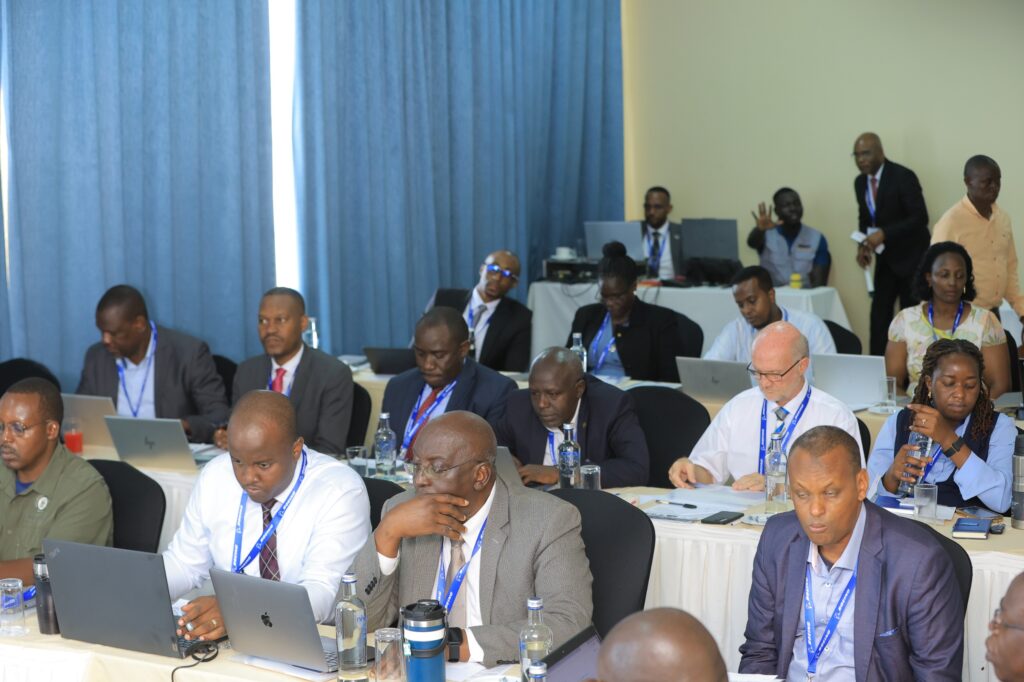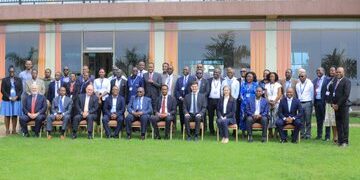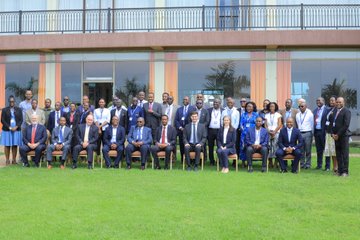The Uganda Civil Aviation Authority (UCAA), in collaboration with the East African Community Civil Aviation Safety and Security Oversight Agency (CASSOA), Boeing International, and Cranfield University, has convened a three-day Regulatory Excellence Workshop at Protea Hotel, Entebbe.
Running from September 1–3, 2025, the workshop brings together aviation regulators, industry leaders, and technical experts from across East Africa to strengthen regulatory capacity in an era of rapid technological transformation.
Opening the workshop, UCAA’s Director General, Fred K. Bamwesigye, underscored the increasing importance of effective oversight in a fast-changing aviation landscape.
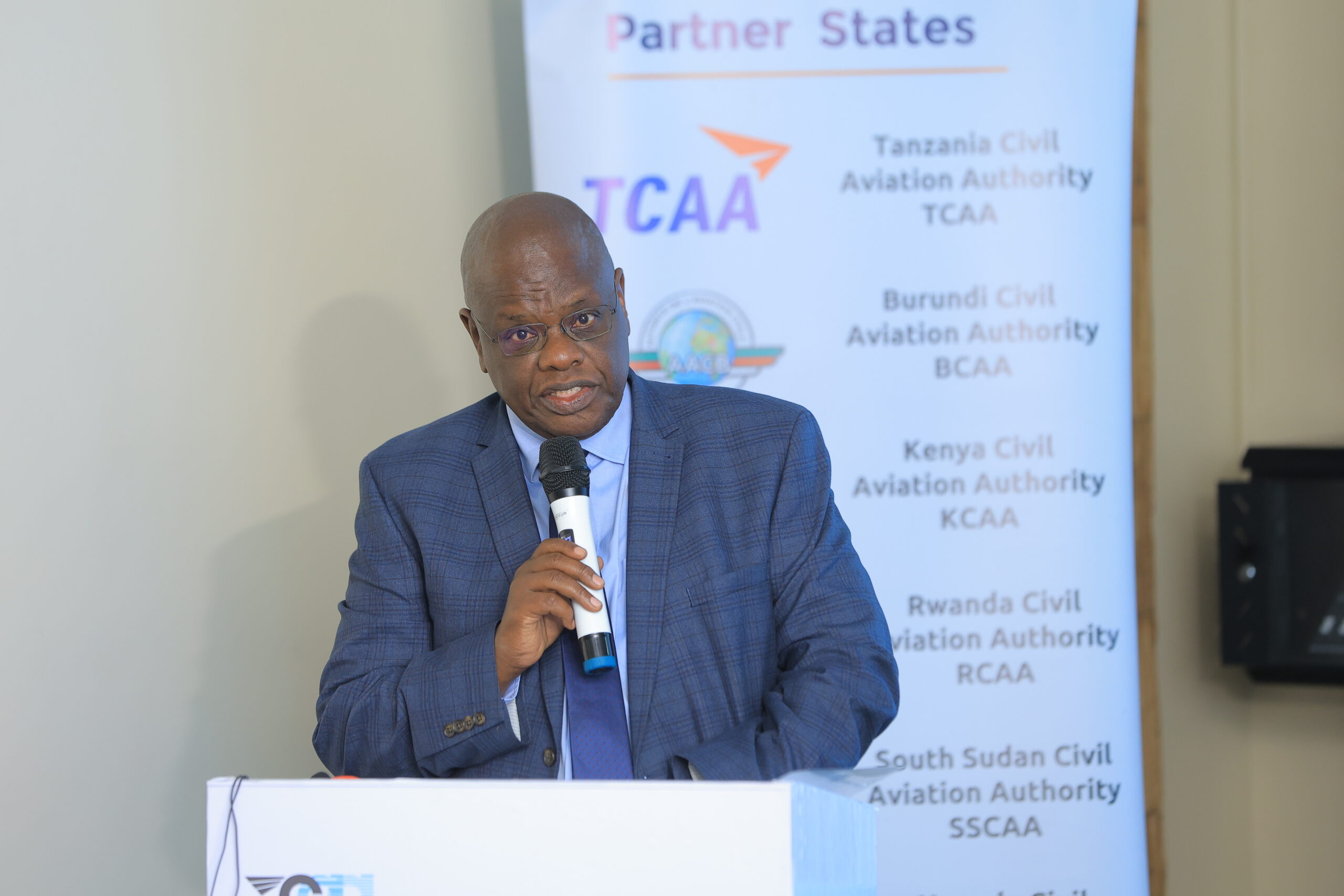
“The aviation industry is experiencing rapid innovations—digitalization, drones, cyber-security, electric vertical take-off and landing (eVTOL), and advanced air mobility systems,” he said. “These changes require regulators not only to enforce standards but also to safeguard public trust while enabling growth and innovation.”
Mr. Bamwesigye stressed that regulators now shoulder a dual responsibility as protectors and enablers of progress. “We must ensure safety, transparency, and accountability, while at the same time creating environments where industries can thrive, investments can be attracted, and opportunities expanded,” he added.
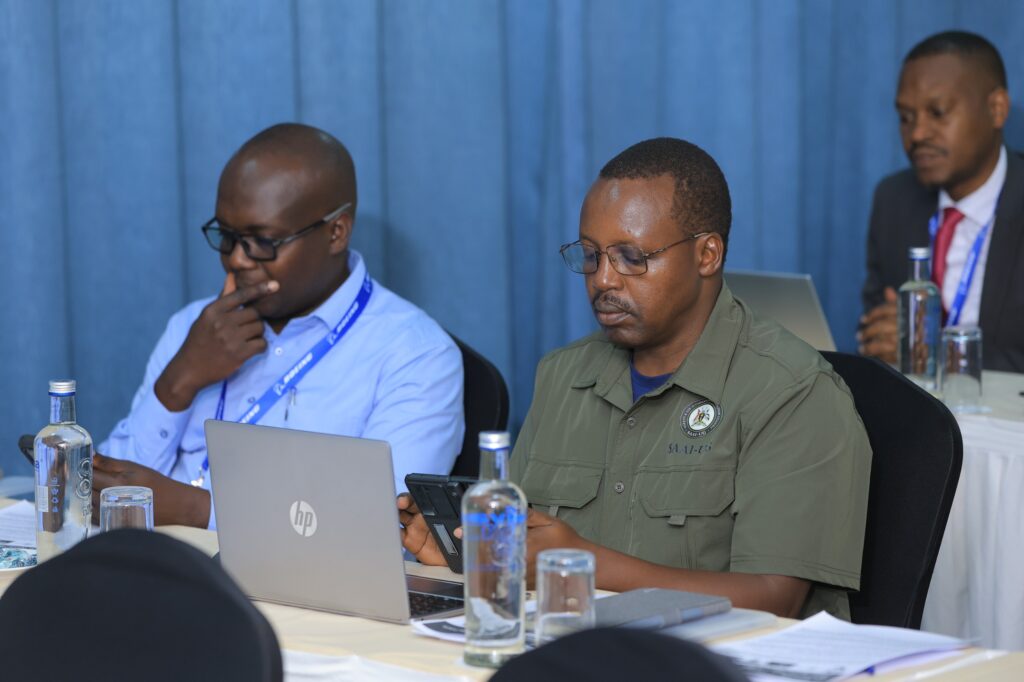
In his detailed address, he called for constant training, stronger risk management, and deeper collaboration across governments, industry players, and academia. “This balancing act is not simple,” he noted, “but it is central to building regulatory systems that inspire trust, enable innovation, and safeguard the future of aviation in Africa.”
Regional Cooperation at the Forefront
CASSOA’s Executive Director, Eng. Richard Gatete, described the initiative as both timely and strategic, particularly given the pressures facing the global aviation industry.
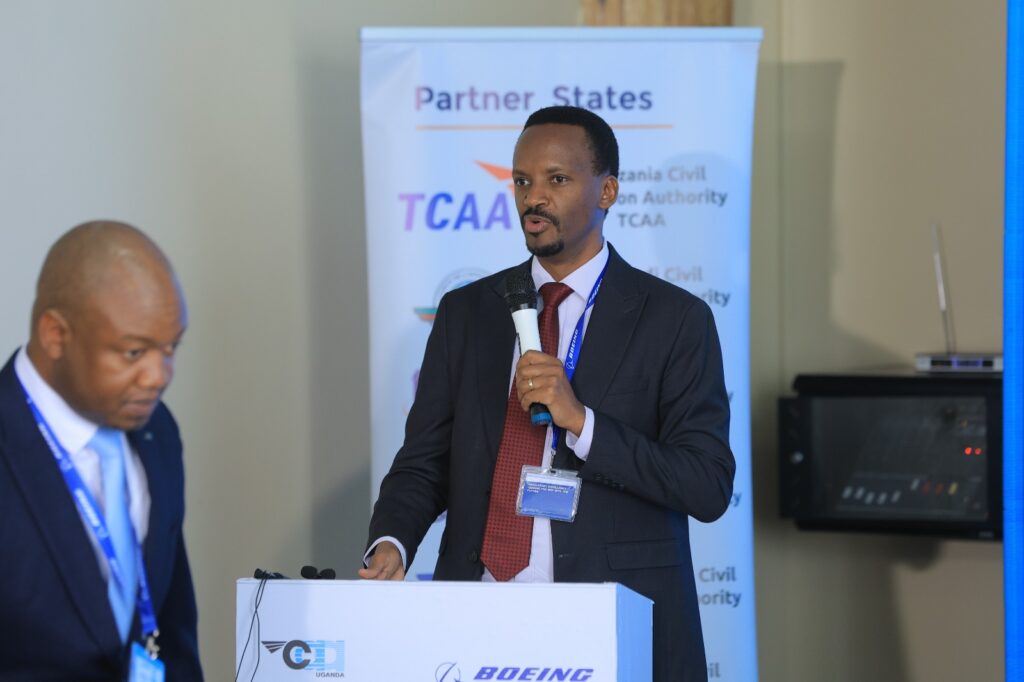
“Effective regulation is the backbone of safe and sustainable air transport,” he emphasized. “By working together through regional platforms such as this, we can standardize procedures, anticipate risks, and strengthen the resilience of our aviation systems.”
Eng. Gatete extended appreciation to Uganda for hosting and to all partners for making the program possible. “This workshop comes at a very critical time,” he said. “The sector is facing unprecedented pressures from rapid technological advancements to complex challenges of oversight and harmonization. Only through joint efforts can we chart a path toward regulatory excellence in East Africa and beyond.”
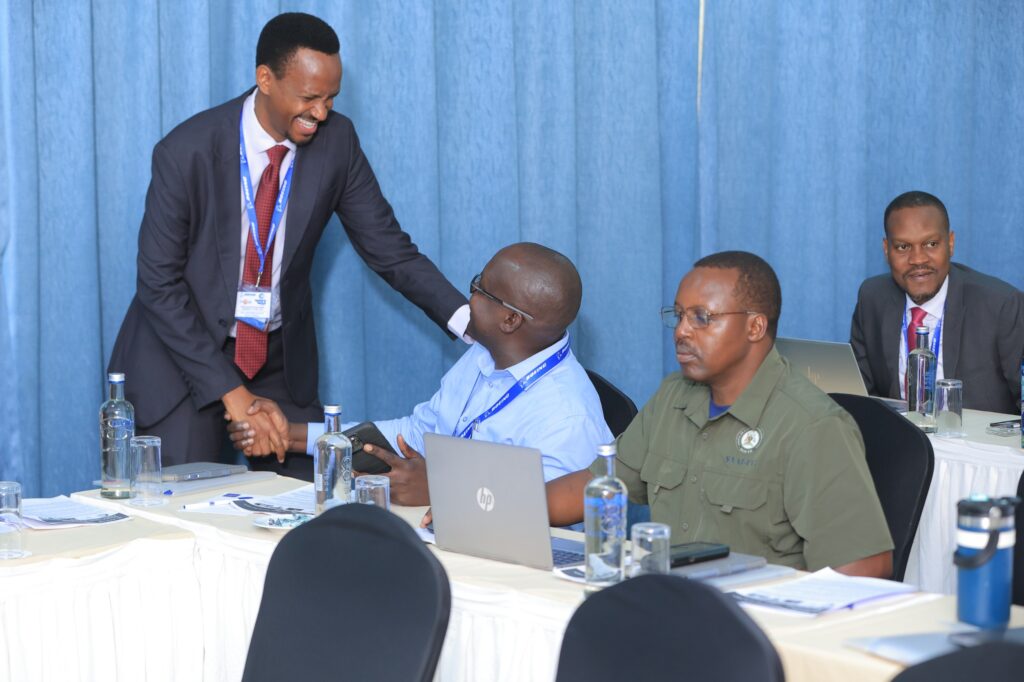
Boeing’s Global Commitment
From Boeing International, Yohannes Amare, Senior Program Manager for Global Safety and Regulatory Affairs, described the workshop as the realization of a long-held vision.
“While the planning for this particular workshop may have taken just a few months, the idea of collaboration has been on our minds for much longer,” he said. “Today’s event is not just a milestone but the beginning of many more opportunities.”
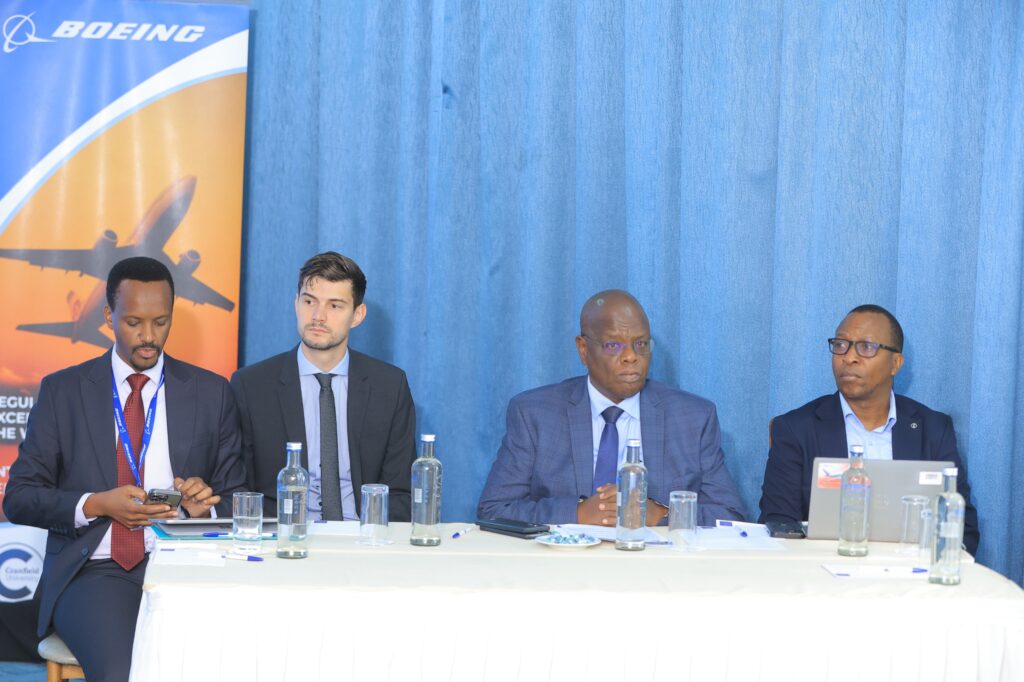
Amare noted Boeing’s intent to replicate similar engagements across other African sub-regions, with upcoming collaborations focusing on technical aspects of regulatory activities. “Please accept my sincere apologies for not being able to join you physically today,” he told participants virtually, “but I remain committed to strengthening our partnership with CASSOA and the regulators represented here.”
Training as a Two-Way Exchange
Paul Lukanga, Director Technical at CASSOA, guided participants through introductions and emphasized that the training was designed to be a mutual learning platform.
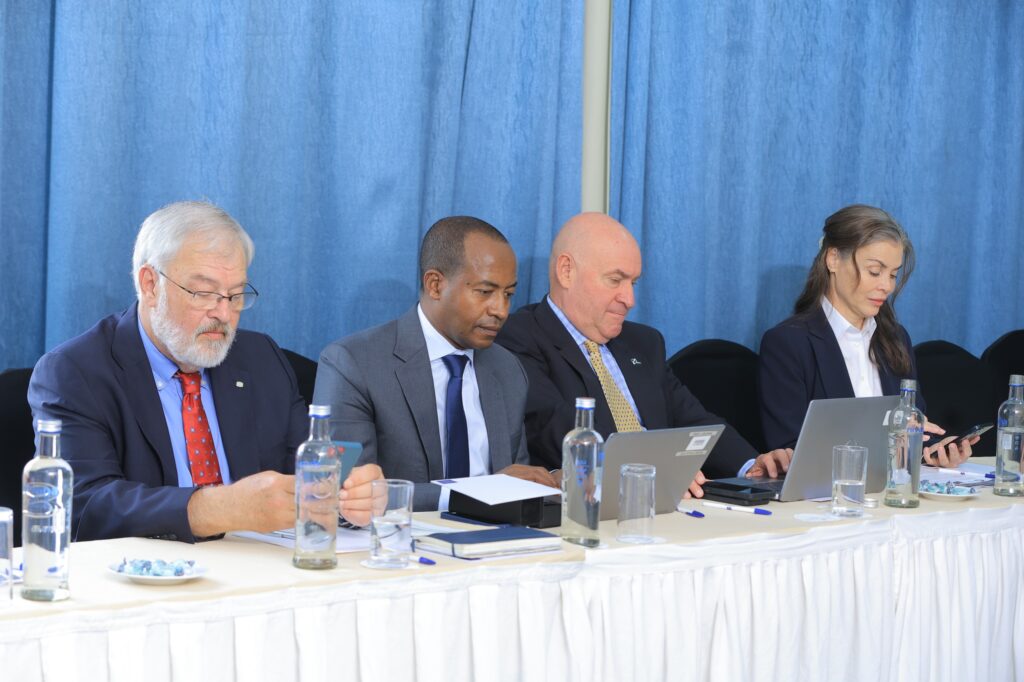
“This is not just about knowledge flowing one way from experts to participants,” he said. “It is a mutual learning opportunity. While experts share global best practices, we encourage you—our participants—to share your experiences, challenges, and questions. That is how we enrich the discussions and make the program practical and relevant.”
Lukanga also encouraged participants to use the sessions to build professional connections. “These relationships are as valuable as the technical knowledge we gain here,” he remarked.
Academic Expertise on Organisational Resilience
Representing Cranfield University, Dr. Fabian Steinmann, Lecturer in Organisational Resilience and Change, described the workshop as a unique space for both learning and partnership.
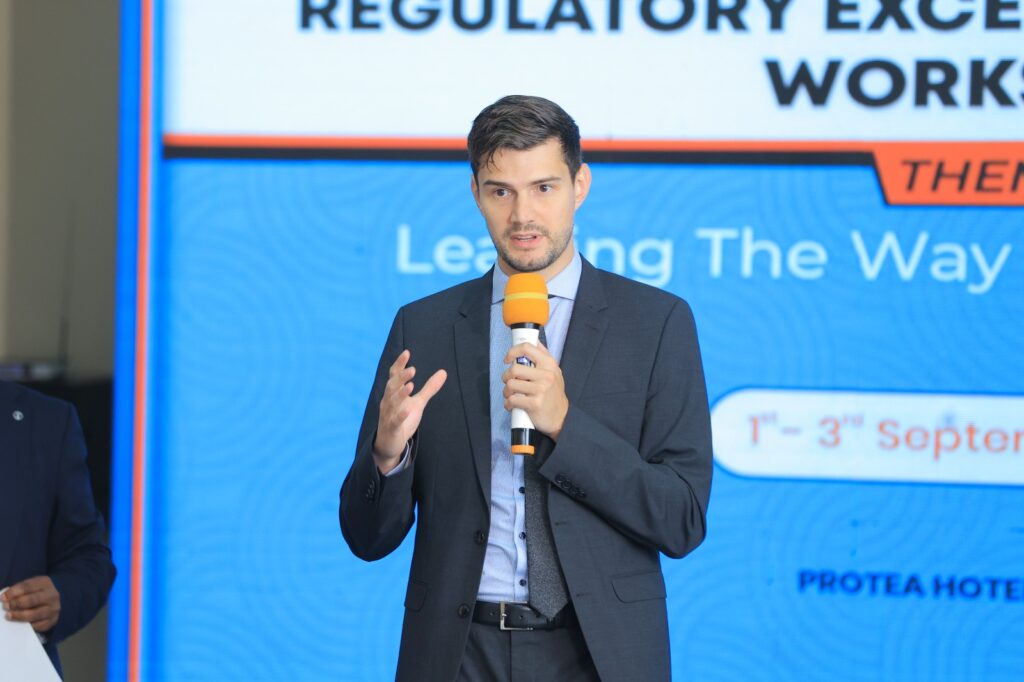
“What makes gatherings like this so valuable is the passion and dedication participants bring,” he said. “For me, this workshop is not only about teaching—it is about partnership. It is about building connections and creating opportunities to learn from each other.”
Dr. Steinmann stressed that aviation is inherently global, making knowledge-sharing essential. “We are privileged to work with colleagues from across the world,” he added. “That gives us access to best practices and lessons that can strengthen us all. At the heart of it all is safety—the common goal that unites us, whether in Africa, Europe, or anywhere else.”
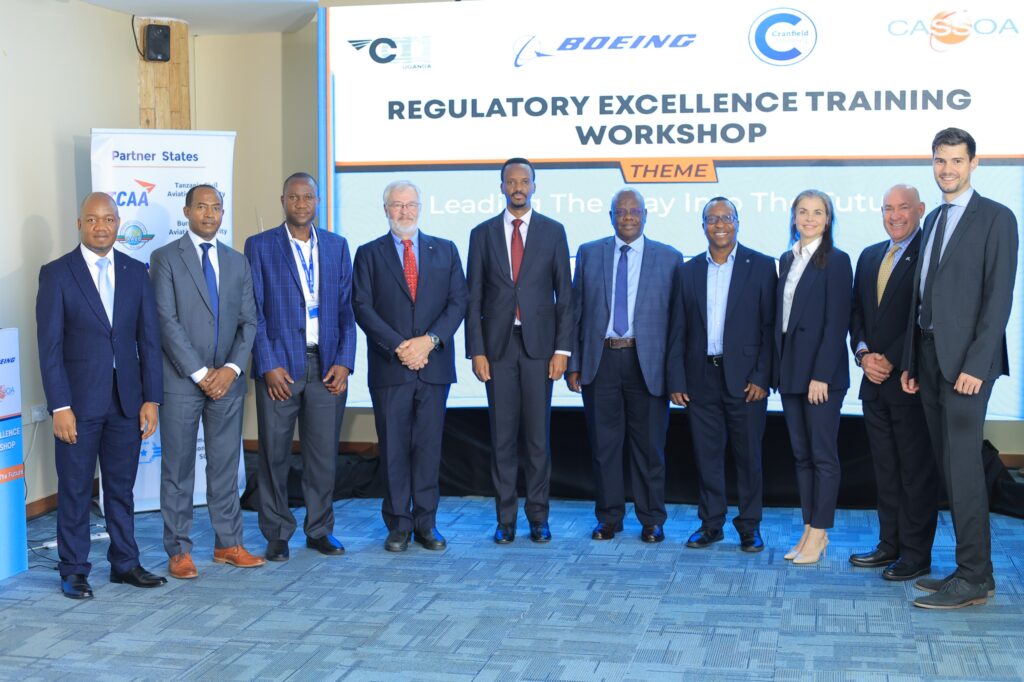
Over the course of three days, participants will examine strategies for regulating emerging technologies, crisis management and resilience, leadership in regulatory change, and safety management systems (SMS). Beyond technical skills, the workshop emphasizes the value of collaboration among regulators, airlines, service providers, and international partners in shaping a safer, more innovative, and globally competitive aviation sector for Africa.
